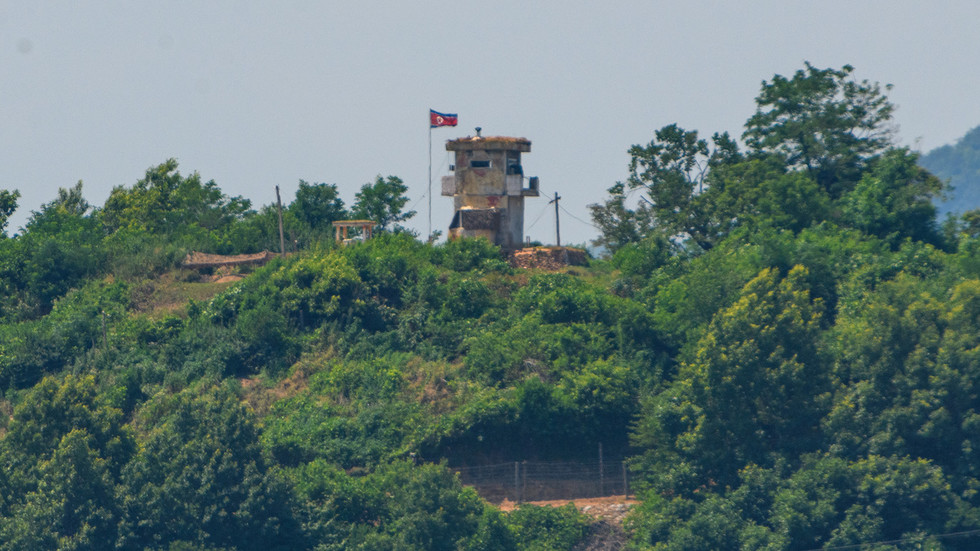North Korea has officially declared its border with South Korea to be an “eternal fortress,” following the destruction of key road and rail links between the two nations. The state-run Korean Central News Agency (KCNA) reported that North Korean forces recently detonated segments of these transport networks in a move described as an “inevitable and legal response” to provocations from Seoul. This action is part of a broader strategy of complete separation between North and South Korea, with military officials emphasizing that additional measures will be taken to safeguard the border. The destruction includes 60-meter sections of roads and railways on both the east and west sides of the demarcation line, marking an escalation in tensions in the region.
The defensive actions taken by North Korea are framed as a legitimate response to what they see as a dire security situation exacerbated by South Korean military activities. The KCNA cited the North Korean Constitution in detailing its rationale, claiming it designates South Korea as an “absolutely hostile state.” This rhetoric is a significant development, as it reflects an official acknowledgement of the South’s status under North Korean law. The ongoing tensions were underscored by a recent session of North Korea’s Supreme People’s Assembly, which sought to amend constitutional provisions related to its southern neighbor. North Korean leader Kim Jong Un articulated during parliament discussions that any notion of reunification had been abandoned and that South Korea should be recognized as a distinct adversary.
Further complicating the situation are accusations from North Korea that South Korea has been employing drones to disperse propaganda leaflets over its territory. Though South Korea has neither confirmed nor denied these allegations, it has issued stark warnings that any retaliation from the North targeting the South would lead to its regime’s downfall. This exchange points to a growing sense of animosity and distrust between the two Koreas, burdens that are exacerbated by mutual claims of provocations.
Notably, North Korea’s aggressive actions to sever transport links follow joint military exercises conducted by the United States and South Korea, which the North has condemned as “provocative war drills for aggression.” This military cooperation between the U.S. and South Korea is perceived by North Korea as a direct threat, resulting in heightened military preparedness along their side of the border. The North has reportedly bolstered its military presence with additional artillery, army units, landmines, and barriers, indicating a strategic pivot towards an even more defensive posture along the demilitarized zone (DMZ).
The destruction of transport infrastructure marks a decisive step in North Korea’s attempts to fortify its national borders against perceived external threats. As North Korea continues to solidify its stance against South Korea, observers are keenly aware of the implications for diplomatic relations in the region. Analysts suggest that North Korea’s aggressive posturing could further isolate it from international dialogue and exacerbate the already tense geopolitical climate in East Asia. The ongoing militarization of the border raises concerns about the potential for conflict escalating out of control amidst the deteriorating ties between the two Koreas.
In conclusion, the demolition of road and rail links reflects both a tactical and symbolic measure by North Korea to assert its independence from South Korea, driven by constitutional amendments that reaffirm its adversarial stance. As Pyongyang fortifies its defenses, the Korean Peninsula remains at a precarious juncture, characterized by deepening divisions and increased military readiness on both sides of the DMZ. The cycle of provocations and responses underscores the challenges of reconciliation and the search for stability in a region fraught with historical enmities and contemporary strategic dilemmas.

